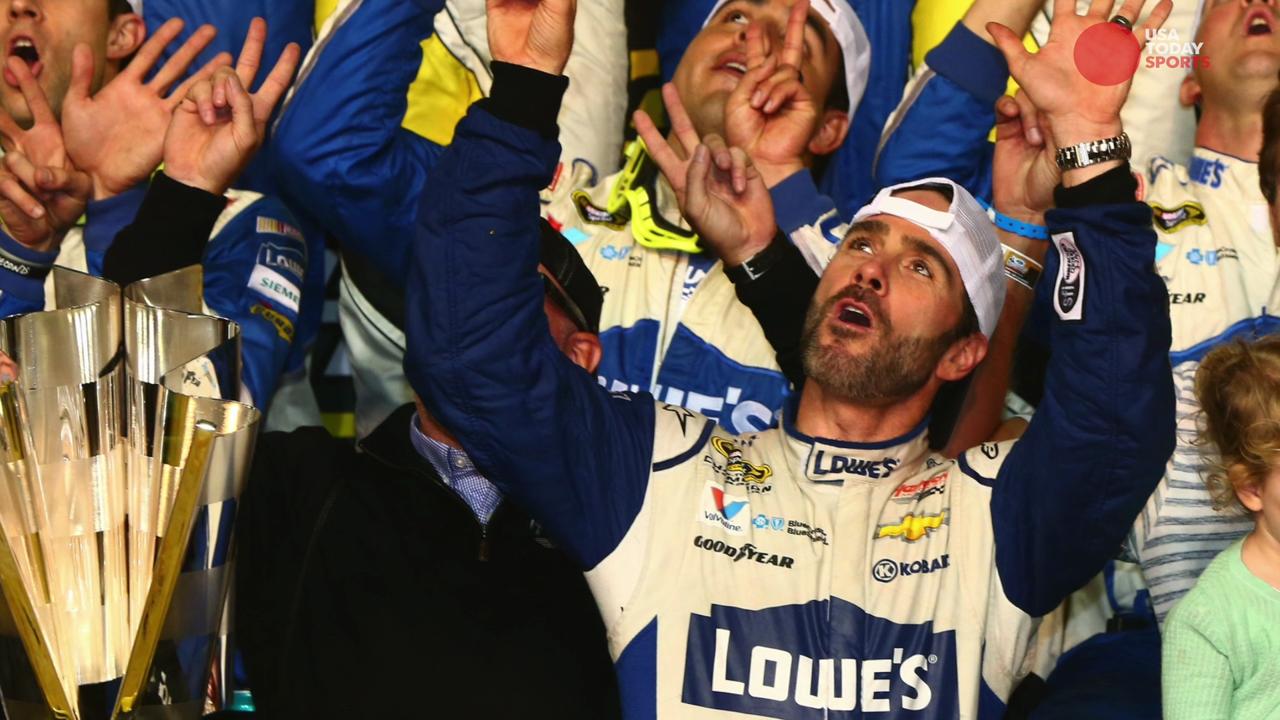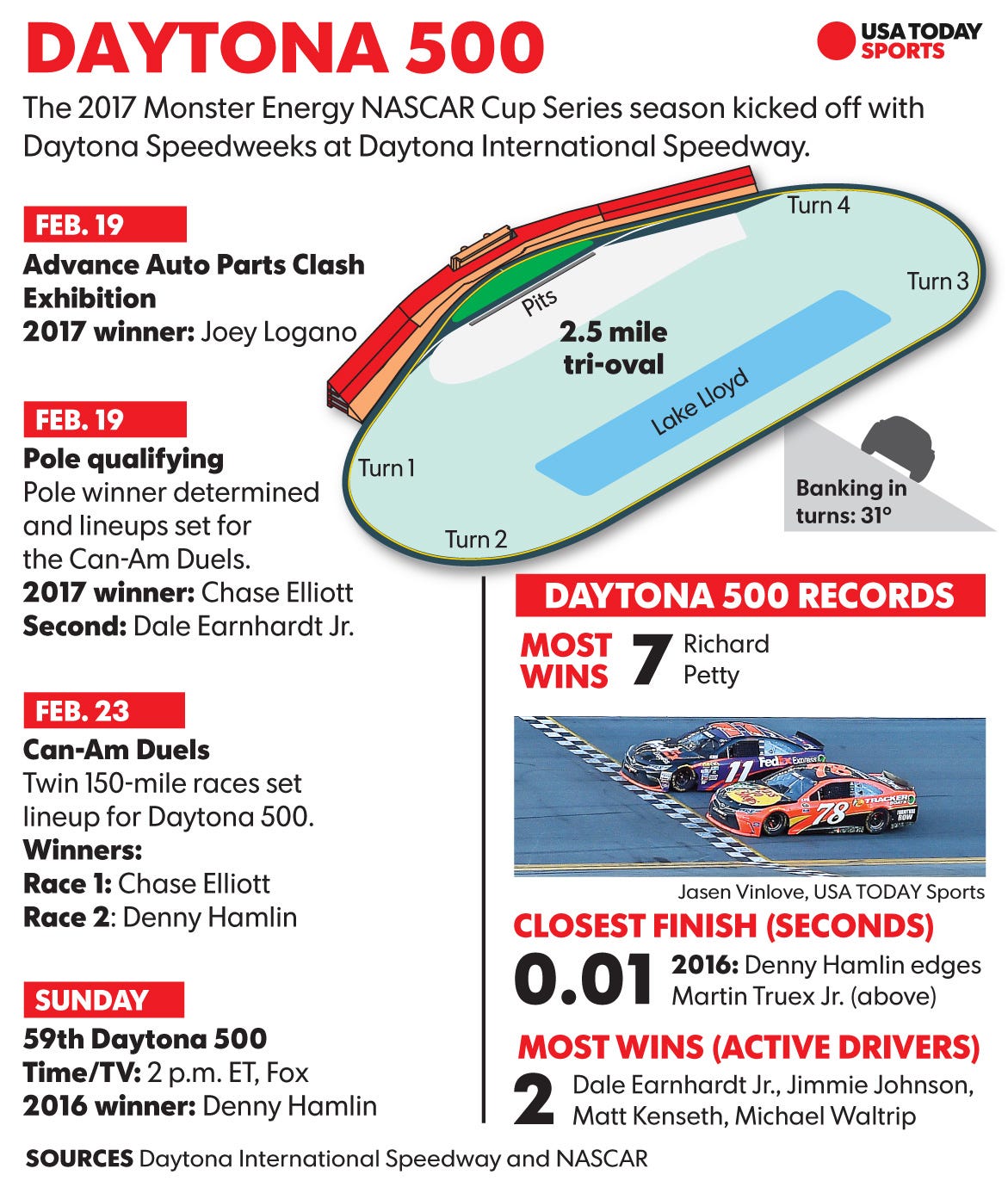Why do all NASCAR drivers sound alike? – USA TODAY

Hendrick Motorsports driver hopes to secure his eighth Cup Series title this season.
DAYTONA BEACH, Fla. —The script goes something like this: a NASCAR driver emerges from the car, mentions his car sponsor followed by the engine manufacturer, says a few sentences about what just transpired and drinks from whatever soda or energy drink he or she is loyal (or contractually bound) to.
“I remember the first time I saw that,” retired NASCAR driver Jeff Burton told USA TODAY Sports. “At first, I thought, ‘Wow, that’s pretty cool.’ Then you realize all your sponsors are on your fire suit and car, so they know you know what companies you’re representing. You may be thinking you’re helping those corporate sponsors, but you’re actually hurting them.”
While there are many factors to NASCAR’s ratings and attendance declines, many drivers and others around the track pin part of the malaise on an inability for fans to connect with the current crop of drivers. Take Jimmie Johnson, who has dominated the sport with seven Cup titles but will never be confused as fan favorite.
MORE NASCAR COVERAGE:
“If you look at the history of the sport, you had Richard Petty, Cale Yarborough Darrell Waltrip and Dale (Earnhardt) Sr. just being themselves,” veteran driver Todd Bodine said. “You could get a feel for their personalities. In this generation of drivers, we all do this corporate song and dance. We want to thank Quick Lube or whatever sponsor we have and then give standard answers in television interviews. It’s become vanilla. It’s become boring. We don’t see any personality.”
Four-time champ Jeff Gordon told USA TODAY Sports that he understands why NASCAR drivers, unlike athletes in other sports, can feel hamstrung.
“It’s a lot of pressure,” Gordon said. “It’s a huge part of what goes on in the sport. You’re not just focused on being the best driver, being part of a team and winning races. You have to be conscious of the business side and the commercial side of it as well.
“Take LeBron (James) and other athletes who have personal service agreements. When they’re representing a company, they are conscious of that. But usually they go, ‘No. No. What happens on the court or on the field is different than what happens away from it.’ As drivers, we are thinking those are the same.”
Even at 16, Camping World Truck Series driver Todd Gilliland says he understands the driver-sponsor relationship well.
“You have to keep the sponsors happy or else you wouldn’t be here, but not many people want to talk to you if you don’t have a personality,” said Gilliland, whose father, David, raced in Cup. “It’s hard to balance.”
Driver conduct has rarely been seen as a reason for companies to drop out as a sponsor. Moreover, Burton said not once in his 22-year Cup career did a corporation dictate to him how he should conduct himself in front of the news media.
“A lot of that isn’t generated by the corporations, but the drivers worried about the corporations,” Burton said. “I’ve never been in a corporate situation where I was encouraged to not say what I thought. Still, I hear a lot about this corporate speak and it sounds like they are all afraid of saying something that will make the sponsor mad. It needs to change. I told my son (K&N Pro Series East driver Harrison Burton) that people want to hear what you think.”
Cup driver Clint Bowyer, one of the most affable drivers in Sunday’s Daytona 500, has never shied away from speaking his mind, including telling reporters about the travails of changing his child’s diapers at media day here last year.
But he said as much as Twitter and Facebook have helped drivers connect with fans, there’s definitely a downside of the new landscape.
“Ten years ago when I came into the sport, we didn’t have as much social media and all that crap,” Bowyer said. “We weren’t scrutinized for every little move we made. I hate that. I look at these kids and I realized how much it sucks for them.
“I used to go out with the guys, who were my heroes, and we’d go downtown. They showed me how to do it. Now, if we go do that we can be (accused) of not being dedicated to what we are doing. Some of it’s true, but some of it is a made up opinionated story from when somebody caught a bad moment or something.”
Driver Joey Logano, whose five-year extension with Penske racing was announced on Friday, bristled when asked if drivers of his generation were too guarded.
“I really feel like I am who I am,” Logano said. “Love it or leave it. I am very fortunate to have an owner who is not going to put the chokehold on you if you say something wrong. Roger (Penske) is a very open person to have a conversation with. I have a sponsorship with Shell and Penzoil that while I’m not going to go out there and be an idiot, they let me say what I want to say.”
Teams and manufacturers offer media training to drivers, although that’s more to make them more comfortable in front of reporters than hammering home the need to mention sponsors repeatedly.
Two-time Daytona 500 winner Michael Waltrip, who is making his final start in the season-opening race on Sunday, said all he had was his older brother.
“I had media training and his name was Darrell,” Waltrip, quipped “I just copied what he did.”











































